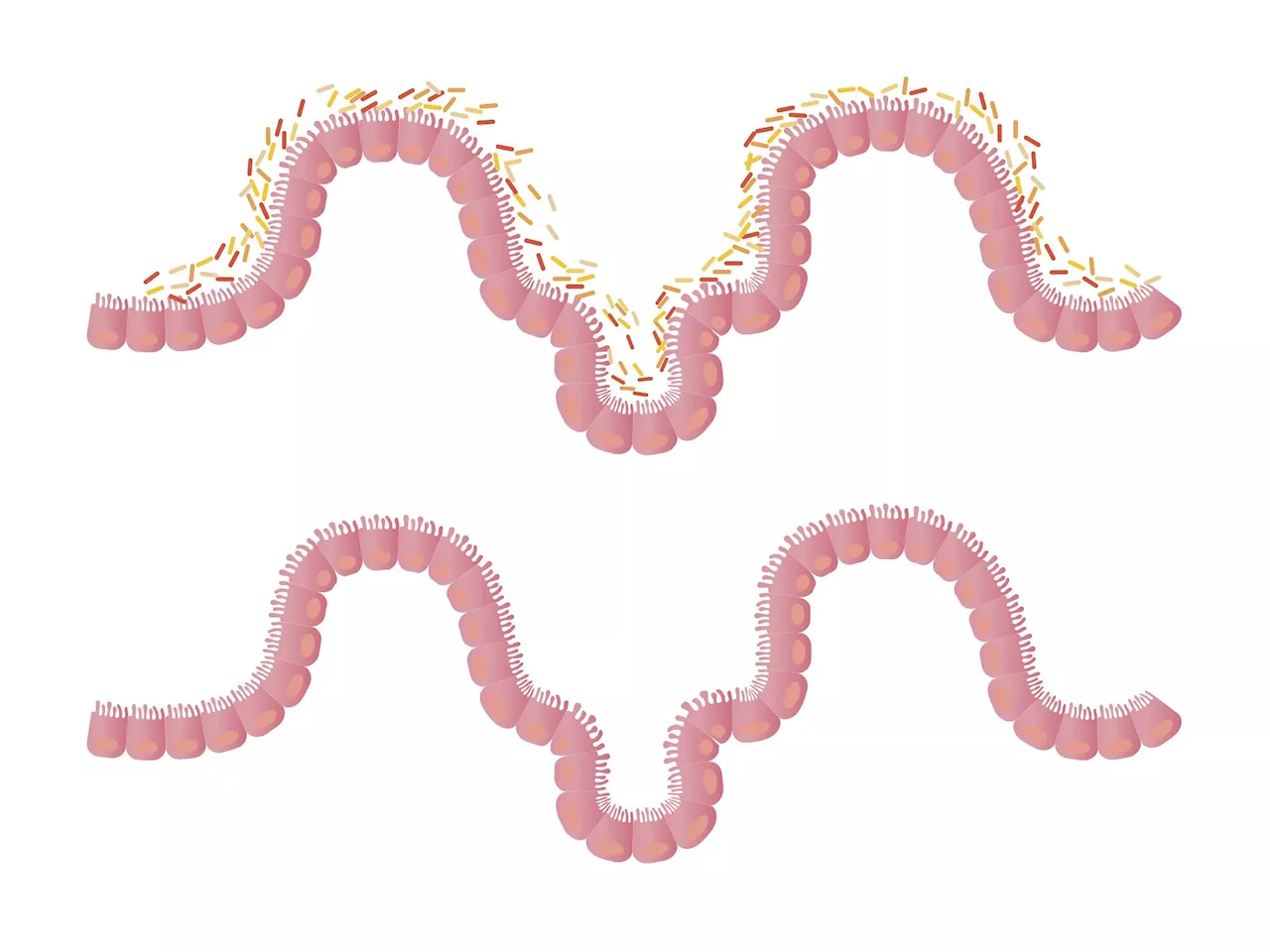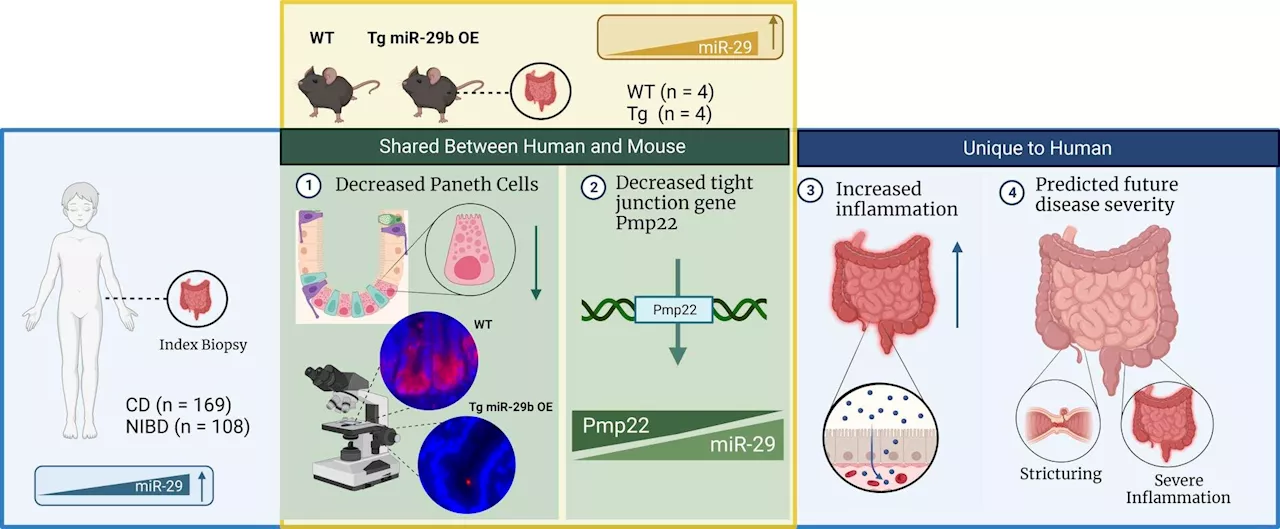Crohn's disease is a chronic inflammatory bowel disease that is sometimes insufficiently controlled by immunosuppressive therapies with a subsequent need for surgical removal of affected bowel segments.
Mar 25 2024Medical University of Vienna Crohn's disease is a chronic inflammatory bowel disease that is sometimes insufficiently controlled by immunosuppressive therapies with a subsequent need for surgical removal of affected bowel segments. By analyzing draining mesenteric lymph nodes of affected small intestinal segments of patients who had required surgery, a research team led by Lukas Unger from MedUni Vienna identified immune responses that improve our understanding of the disease.
Recent studies had investigated immune responses in mesenteric lymph nodes in models of ulcerative colitis, another chronic inflammatory bowel disease that exclusively affects the large intestine. The insufficient data available to date on Crohn's disease, which often manifests itself in the last section of the small intestine but spares the large intestine, forms the background to the research carried out by Lukas Unger and his team from MedUni Vienna's Department of General Surgery.
B-cell reactions investigated The scientists discovered the answer by comparing lymph nodes from inflamed and non-inflamed segments of the patient's small intestine: This showed that a certain type of immune cell mature in sections affected by Crohn's disease in a quantity and in a way that is not detectable in the patients' healthy intestinal segments.
Investigating precise mechanisms in future research The results form the basis for further research, particularly into the exact mechanisms and the question of how these altered B-cell responses in Crohn's disease patients influence the clinical course after surgery. In addition, new therapeutic strategies could be developed based on the findings.
日本 最新ニュース, 日本 見出し
Similar News:他のニュース ソースから収集した、これに似たニュース記事を読むこともできます。
 New understanding of the gut immune system may hold promise for Crohn's disease patientsTricks played by certain disease-driving gut bacteria might help explain differences in how patients experience Crohn's disease (CD)—a severe and painful chronic inflammatory bowel disease.
New understanding of the gut immune system may hold promise for Crohn's disease patientsTricks played by certain disease-driving gut bacteria might help explain differences in how patients experience Crohn's disease (CD)—a severe and painful chronic inflammatory bowel disease.
続きを読む »
 Implantable sensor could lead to timelier Crohn's treatmentA team of Northwestern University scientists has developed the first wireless, implantable temperature sensor to detect inflammatory flareups in patients with Crohn's disease. The approach offers long-term, real-time monitoring and could enable clinicians to act earlier to prevent or limit the permanent damage caused by inflammatory episodes.
Implantable sensor could lead to timelier Crohn's treatmentA team of Northwestern University scientists has developed the first wireless, implantable temperature sensor to detect inflammatory flareups in patients with Crohn's disease. The approach offers long-term, real-time monitoring and could enable clinicians to act earlier to prevent or limit the permanent damage caused by inflammatory episodes.
続きを読む »
 Implantable temperature sensor detects inflammatory flareups in patients with Crohn's diseaseA team of Northwestern University scientists has developed the first wireless, implantable temperature sensor to detect inflammatory flareups in patients with Crohn's disease.
Implantable temperature sensor detects inflammatory flareups in patients with Crohn's diseaseA team of Northwestern University scientists has developed the first wireless, implantable temperature sensor to detect inflammatory flareups in patients with Crohn's disease.
続きを読む »
 Graeme Shinnie on living with Crohn's: 'I thought my career was gone'Aberdeen captain Graeme Shinnie has opened up about his battle with Crohn's disease and how the chronic illness almost ended his career.
Graeme Shinnie on living with Crohn's: 'I thought my career was gone'Aberdeen captain Graeme Shinnie has opened up about his battle with Crohn's disease and how the chronic illness almost ended his career.
続きを読む »
 Study finds microRNA can predict severe Crohn's disease in childrenWhen comparing intestinal samples of children with Crohn's disease and healthy children, one molecule stands out: the microRNA (miRNA) miR-29, which shows significant differences between the two groups, researchers found.
Study finds microRNA can predict severe Crohn's disease in childrenWhen comparing intestinal samples of children with Crohn's disease and healthy children, one molecule stands out: the microRNA (miRNA) miR-29, which shows significant differences between the two groups, researchers found.
続きを読む »
 Graeme Shinnie feared Aberdeen dream would be shattered by Crohn's DiseaseThe Dons skipper admits the lowest point came during his time at Inverness when a mammoth op was needed to relieve the pain
Graeme Shinnie feared Aberdeen dream would be shattered by Crohn's DiseaseThe Dons skipper admits the lowest point came during his time at Inverness when a mammoth op was needed to relieve the pain
続きを読む »
